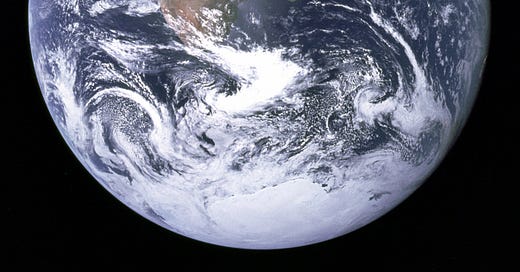COP28: Who Does Speak for Earth?!
Here’s a brief update to my previous substack on COP28. In this, I compared the COP meetings to the defunct League of Nations, an organisation devoted to peace that failed to prevent World War II. I speculated that COP might end up being remembered in the same way. I now think that I was being far too generous.
What does one say when the president of COP claims that there is ‘no science’ behind demands to phase out fossil fuels? This is beyond insulting to everyone. It’s also a display of transparent self-interest. But it was naive to hope for anything else, because COP has been captured by fossil fuel interests. It’s now plain that COP represents the interests of fossil-fuelled power, in the physical and political sense, and nothing else.
Over forty years ago, at the height of the Cold War, the astronomer Carl Sagan appealed to our sense of common humanity in a vast cosmos as a counter to the insular and increasingly dangerous self-interest of the powerful. At the time two superpowers, with their capacity for mutually-assured nuclear destruction, “held hostage” the citizens of the Earth. We know who speaks for the nation-states, Sagan said, we see their faces everyday on the news.
But in a time of global peril, who speaks for Earth?
Our loyalties are to the species and the planet, we speak for Earth. Our obligation to survive and flourish is owed not just to ourselves but also to that Cosmos ancient and vast from which we spring. (Carl Sagan, Cosmos, Episode 13; see full clip here).
Global civilisation is now being held hostage by fossil-fuel interests. This threatens not only the human citizens of Earth, but the rest of the biosphere. One thing that I strongly believe is that this is not a zero-sum game. If global civilisation is to survive, then this must also mean the survival of humanity as a whole, not some particular faction. Similarly, it is a fallacy to assume that the biosphere must be sacrificed in order for humanity to flourish.
We live and flourish together, or we really do die alone.
In sum: I think that this should be the last COP. I think it should be admitted to be a failure, and I think that new approaches should be tried. These may be grassroots, or they may be new frameworks for international cooperation. But it’s better to admit one’s failures and move on than perpetuate a process that is beginning to cause more harm than good.




